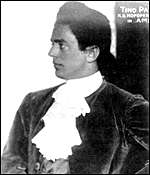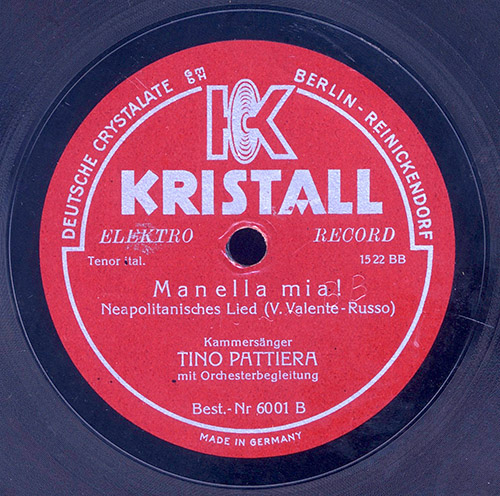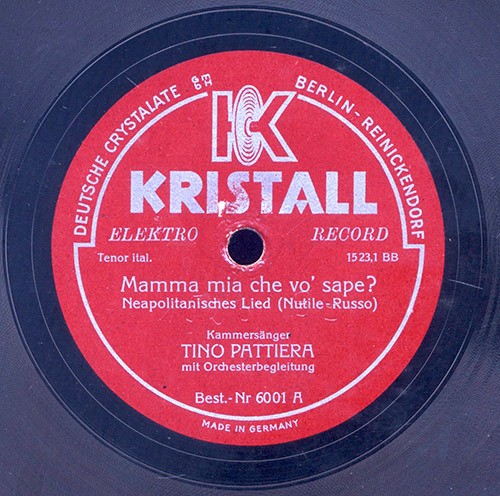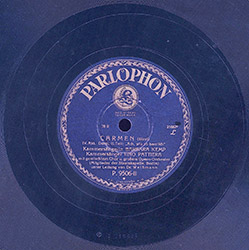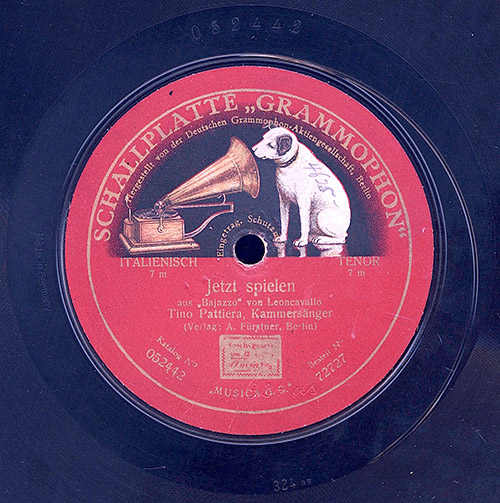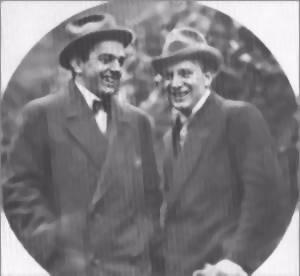Tino Pattiera
I wish to thank Vladimir Efimenko for the picture.
I wish to thank Anton Bieber for the above recordings, the label and catalogue scans.
I would like to thank Thomas Silverbörg for the recording and picture. Tino Pattiera was born on 27 June 1890 in Cavtat, Croatia. While studying medicine in Prague, Pattiera used to spend the evening in local taverns singing for his friends. One evening, he was heard by a baritone of the National Theatre who arranged for him an audition at the theatre in Zagreb. Pattiera pleased and was awarded 200 crowns a month to support himself and pay for singing lessons. Pattiera stayed in Zagreb for one year. The Zagreb Opera director had set the condition for paying for his studies that he would not sing anywhere else. However one evening, Pattiera sang all night long in a tavern for his friends. His teacher found out that evening, and the next morning Pattiera was asked by the director of the Zagreb Opera to come for an audition. He was asked to sing Don José's aria and failed. The director fired him on the spot. A lady from Zagreb recommended him to the singer Luise Ehrenstein-Fraenkel in Vienna. Pattiera went to Vienna, sang Don José's aria during his audition. The singer was impressed and recommended him to the countess Schaffgotsch, who supported his education. Pattiera entered school in 1911–14 to study piano, singing, Italian, chorus singing and sport. In 1914 (March or April), Pattiera received a call from the Hofoper in Dresden to audition. Pattiera sang E lucevan le stelle and La donna è mobile. Pattiera was accepted with great enthusiasm by Ernst von Schuch. He was offered a seven year contract, two for further studies and five as member of the Dresden Opera. However nothing came out of it for the moment because of the war. Pattiera was drafted and sent to Croatia. However due to pressure from Dresden, he was relieved from military duty. Pattiera began studying Manrico with a répétiteur and the mezzo Anka Horvath. Pattiera made his debut on 10 February 1916 as Manrico with Siems. He created a sensation since he ended Di quella pira with a high C. After Manrico, Pattiera sang Radames and José, both conducted by Fritz Reiner, who had replaced von Schuch who had died suddenly. In 1918, he sang La bohème with Minnie Nast. During his stay in Dresden, Pattiera made guest appearances in Budapest, Vienna (28 April 1920 in Tosca, replacing Piccaver, with Jeritza and Duhan). He sang again in Vienna in 1923 and 1924 (Fra Diavolo, Carmen, Un ballo in maschera, Tosca, Cavalleria rusticana, Pagliacci, La traviata and Otello). During his stay in Vienna, he sometimes sang Canio twice on the same evening, once at the Staatsoper and once at the Volksoper. This was made possible by playing Pagliacci first in one of the theatres. In 1926, Pattiera was suddenly called to replace Piccaver for the premiere of Andrea Chénier. He, too, got sick, and could not sing. Besides Vienna and Budapest, Pattiera sang also in Prague, Hamburg, Essen, Magdeburg, Königsberg/Kaliningrad, Düsseldorf, Berlin, Duisburg and Chicago (1921 in La bohème, Tosca and Aida). During the 1930/31 season, Pattiera sang his first Tannhäuser wih Schöffler, Böhme, Born and Bokor. Pattiera made movies: Fra Diavolo (1931), Eine Nacht in Venedig (1934). In 1930, Pattiera sang in Der Bettelstudent with Alpár in Berlin. On 7 March 1933, Fritz Busch left Dresden. It was also the beginning of the end of Pattiera's career. Busch was replaced by Böhm, who only used Pattiera in one premiere as Faust. Pattiera finished his career in Berlin and Prague. In 1950, while living in Prague, Pattiera was nominated vocal teacher at the academy in Vienna. Because of diabetes, Pattiera had to give up his position in 1952. He continued to teach in his appartment. Pattiera gave his last concert in Dresden on 29 January 1952, singing arias by Massenet, Donizetti, Puccini, Bizet and songs by Tosti and Tirindelli. His encore was La donna è mobile. In April 1966, Pattiera returned from Vienna to his birth place and died there on April 24th. Pattiera recorded for Odeon, Grammophon, Brunswick, Parlophon, Vox, Electrola, a total of 100 sides. RepertoryAriadne auf Naxos, Der fliegende Holländer, Lohengrin, Tannhäuser Russian opera Boris Godunov, Evgenij Onegin, Pikovaja dama French opera Fra Diavolo, Carmen, Faust, Manon Italian opera Andrea Chénier, Pagliacci, Cavalleria rusticana, La bohème, Madama Butterfly, Manon Lescaut, Tosca, Aida, Don Carlo, La forza del destino, Un ballo in maschera, Otello, Rigoletto, La traviata, Il trovatore Operetta Der Bettelstudent Reference: Stimmen die um die Welt gingen, Nr. 28, June 1990. |
